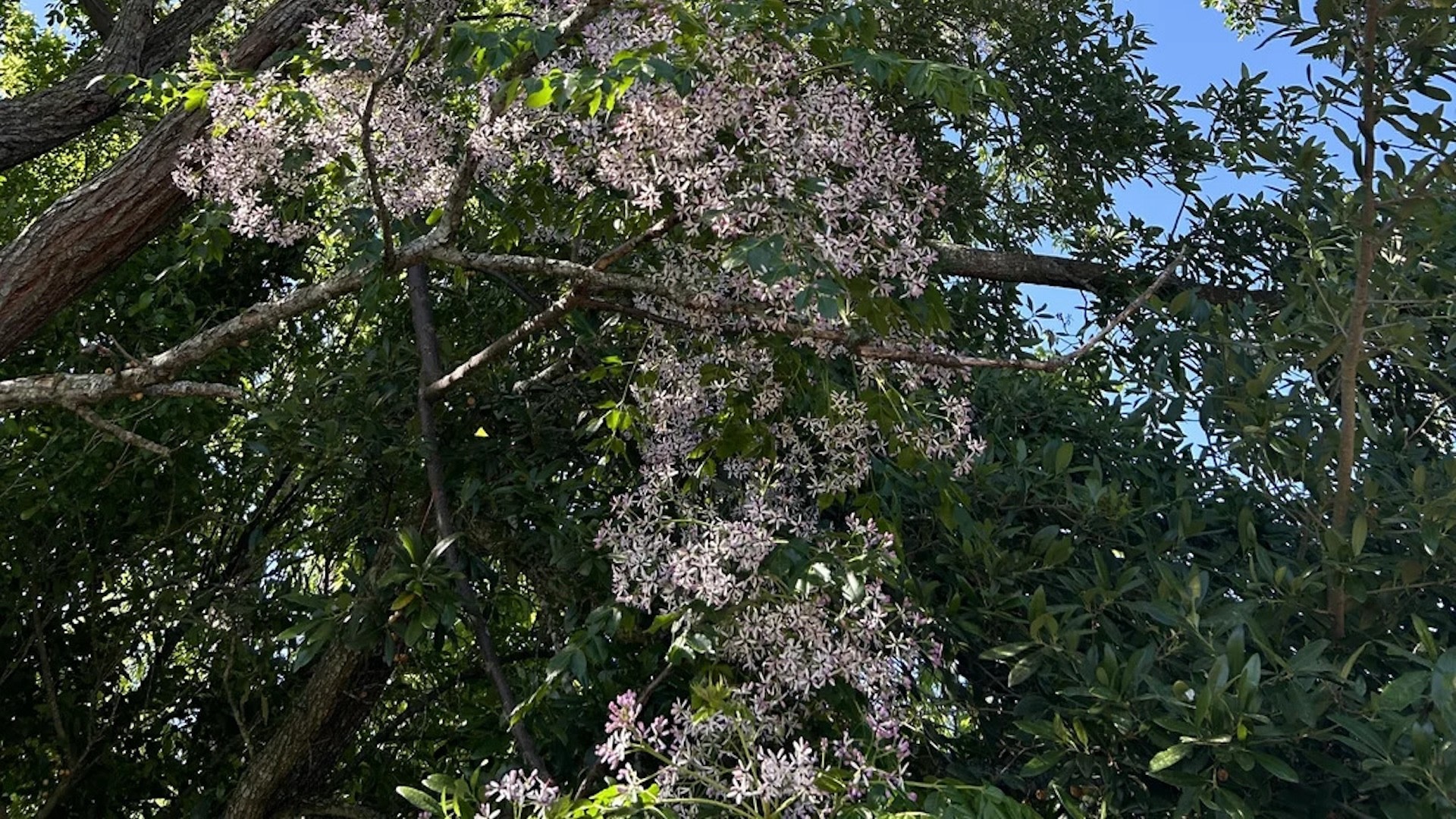A nature lover in Austin, Texas, was left heartbroken after discovering that a gorgeous local tree is actually a burden for the local ecosystem.
"I am in LOVE with this tree," they said in the caption of a photo posted to the r/AustinGardening subreddit. "What is it called?"

"Chinaberry," someone responded. "They're invasive."
"Nooooo whyyyyy!" said the original poster.
Redditors went on to share knowledge and resources about the problematic plant, detailing that the chinaberry outcompetes native plants, and that when the leaves are shed, they can raise soil pH levels that would prevent some seeds from germinating. The berries are also poisonous.
"I'm still trying to eradicate these things all over my property," one user said. "They're a lot of work to remove because they regrow off any roots left behind, and they spread everywhere."
"After first bloom it won't be as pretty, but it's kinda poetic that it looks pretty this time of year," added another. "It's probably the most hated tree in Austin next to the Hackberry."
There are plenty of plants that are pleasing to the eye but that can result in harmful consequences for the area's biodiversity if left unchecked. Wisteria, for example, is a coveted plant for its cascading purple flowers, but it is also invasive in some areas.
Meanwhile, English ivy crawling up a wall can give fairytale vibes up until the point it starts ripping through brickwork. Even bamboo, which seems to be an attractive option for a natural privacy screen, has been known to damage property foundations.
While it's unclear exactly where the chinaberry was growing or how it got there, it does serve as a reminder to be careful about what you choose to plant in a garden. Aesthetics should not be the only consideration, and without proper research, that dream look could quickly turn into a neighborhood nightmare.
Native plants are suited to local soil and climate conditions, and they typically provide habitat, sustenance, and shade for a variety of creatures to help keep the ecosystem balanced. They reduce the need for yard maintenance and excessive watering, too (leading to lower bills).
If you want to rewild your yard, ask an experienced horticulturist about what would be best to plant in your garden to protect local species.
Join our free newsletter for easy tips to save more and waste less, and don't miss this cool list of easy ways to help yourself while helping the planet.









